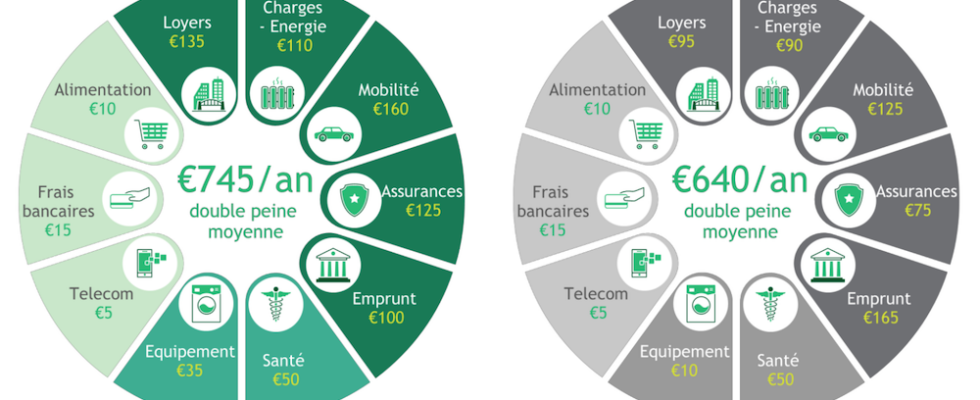In France, the poorer you are, the more you pay for housing, travel or insurance. This phenomenon, called the double poverty penalty, represents an additional cost of 745 euros per year, according to a study published today. That’s the equivalent of 3 months of food shopping.
The phenomenon is old, yet it remains little known. In France, the 9 million poor people must, in addition to suffering from lower purchasing power, pay more than others to access the same goods or services. In other words: the poorer you are, the more expensive life is.
A recent study carried out by the Action Tank Enterprise and Poverty (1) in partnership, in particular, with La Banque Postale, attempts to quantify the phenomenon. According to her, this double punishment of poverty reached 745 euros per year for the poorest 10% (what we call the 1st decile), and 640 euros for the 2nd decile. Or the equivalent, respectively, of 3 months and 2 months of food shopping. 90% of these sums are concentrated on 5 budget items: housing, energy, mobility, insurance and loans.
Effects of exclusion, volume, location…
How to explain this phenomenon? It is neither a question of information nor education, it is a problem of access and price structure, explains Martin Hirsch, co-president of the Action Tank, in a summary of the study .
Several mechanisms are at work. The poorest suffer above all from exclusion effect, which accounts for 50% of the double penalty. Because they lack cash and their financial profile is riskier, they live in smaller accommodations, therefore more expensive per square meter; buy older cars, therefore more energy intensive and more expensive to maintain; access the authorized overdraft less easily and suffer no more payment incidentsetc.
But other factors come into play and interact with each other. L’volume effect, for example, penalizes small consumers, who pay more per kWh of gas or per gigabyte of data. L’localization effectwhich pushes the poorest away from urban centers, leads to a premium on daily travel, but also on car insurance premiums.
